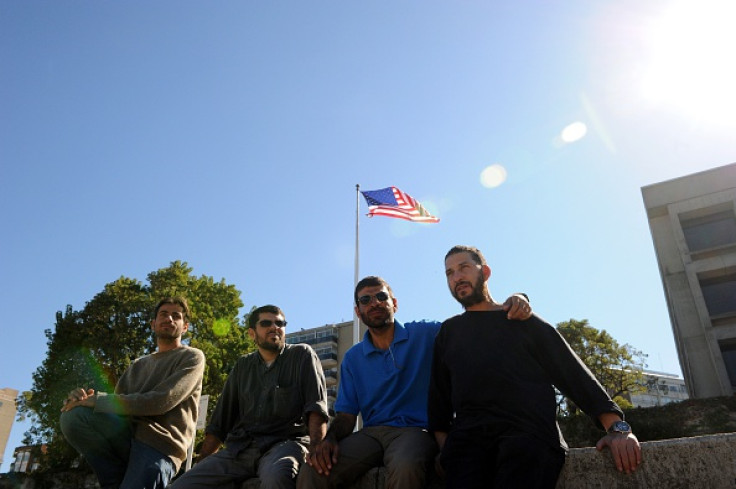Former Guantanamo inmates call on US for financial aid

Four former Guantanamo inmates are calling on the US government to financially compensate them for their 13 years in captivity.
The former inmates – Ali Husein Shaaban, 33, Abd al-Hadi Faraj, 39, Ahmed Adnan Ahjam, 37, and Abdul Bin Muhammad Abbas Ouerghi, 49 –who have been residing in Uruguay since December 2014, protested for a second day on 25 April outside the US embassy in Montevideo.
In a statement published on a blog online, the inmates said, reported AFP News: "The reason we decided to protest in front of the US embassy is that we wanted from them and from all the world to hear our voices.
It's something we didn't want nor called for but unfortunately we were pushed to it. We tried every possible and official way, we talked to many representatives of the government but our conditions didn't change.
"It's something we didn't want nor called for but unfortunately we were pushed to it. We tried every possible and official way, we talked to many representatives of the government but our conditions didn't change."
The inmates accused the US government for throwing their, "mistakes on others," saying, "they should help us with houses and financial support," to settle down in the South American country.
"We'll be here until Monday. We are not leaving until with speak with the ambassador," said Ouerghi.
Several locals have offered the inmates food and blankets while they remain camped outside the US embassy.
The former inmates have thanked the government of Uruguay for allowing them inside their country and said they want to remain in the country.
They are given a monthly income of $600 (£395) every month from Uruguay's government to use towards their food supplies, clothing and other needs, along with accommodation where all the six freed inmates reside.
In response to the protests, the US embassy issued a statement on 24 April saying all requests should be made within the embassy's operating hours using the "appropriate channels," reported AFP News.
The four inmates had been detained as part of the US "war on terror" in 2002.
The former inmates, who were held for years at the Guantanamo Bay detention centre without a charge, never stood trial.
Uruguay's government agreed to take them along with two other men, as a humanitarian gesture, after they were freed from the Guantanamo detention in 2014.
© Copyright IBTimes 2024. All rights reserved.






